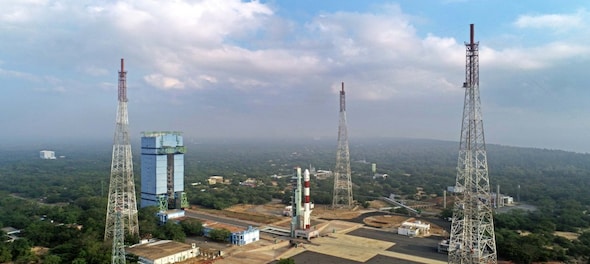
ISRO on January 1, 2024 (Monday) successfully launched its inaugural X-Ray Polarimeter Satellite (XPoSat), which promises to provide valuable insights into celestial phenomena such as black holes. It makes use of a Polar Satellite Launch Vehicle (PSLV) rocket. The 25-hour countdown began on Sunday and follows the successful completion of the Gaganyaan Test Vehicle D1 mission in October.
Marking its 60th mission, the PSLV-C58 rocket carried the primary payload, XPoSat, alongside 10 other satellites destined for deployment in low earth orbits.
The XPoSat aims to explore the polarisation of intense X-ray sources in space. This mission represents a milestone as it is the first dedicated scientific satellite by ISRO designed for research in space-based polarisation measurements of X-ray emissions from celestial sources.
Notably, the US National Aeronautics and Space Agency (NASA) conducted a similar study, the Imaging X-Ray Polarimetry Explorer mission, in December 2021.
Former ISRO Chairman G Madhavan Nair said, "The PSLV has evolved as one of the most reliable and cost-effective in the global scenario. Its track record shows that the success rate is more than 95%, and it is better than the global standard as far as the launch systems are concerned."
Nair highlighted the significance of the upcoming scientific mission, noting that it will feature an observation system delving into fundamental phenomena related to galaxies, black holes, and dying stars. This mission is poised to shed light on the origins of the universe.
#WATCH | Thiruvananthapuram, Kerala: On ISRO's PSLV-C58/XPoSat Mission to be launched on January 1, former ISRO Chairman G Madhavan Nair says, "60th launch of the workhorse, the PSLV will take place on this day (January 1, 2024)... Most of the missions have been successfully… pic.twitter.com/UoLg0zYVzT
— ANI (@ANI) December 31, 2023
Expected to bring substantial benefits to the global astronomy community, XPoSat's observations, based on timing and spectroscopy, are anticipated to enhance our understanding of the physics behind celestial objects like black holes, neutron stars, and active galactic nuclei.
Beyond its scientific contributions, the mission holds the potential to become a pivotal element in building expertise in X-Ray polarimetry within India. XPoSat is expected to lay the foundation for future advancements and foster collaborative networks within the astronomy community.
First Published: Jan 1, 2024 9:13 AM IST
Check out our in-depth Market Coverage, Business News & get real-time Stock Market Updates on CNBC-TV18. Also, Watch our channels CNBC-TV18, CNBC Awaaz and CNBC Bajar Live on-the-go!


Lok Sabha Election 2024: How Indian political parties are leveraging AI
May 7, 2024 6:59 PM
Lok Sabha elections 2024: Prime minister Narendra Modi and other leaders cast their votes
May 7, 2024 6:21 PM

